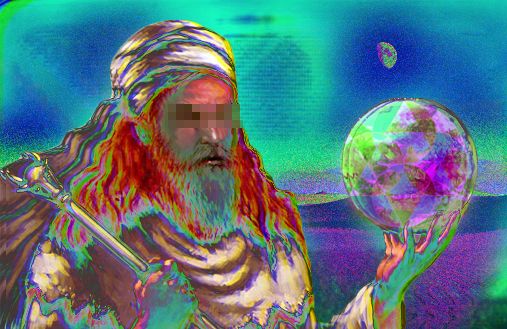ZARATHUSTRA: Three Metamorphoses of the Spirit - Tre Metamorfosi dello Spirito [ENG-ITA]

Friedrich Nietzsche, in the discourses of Zarathustra, cites three metamorphoses of the spirit:
Friedrich Nietzsche, nei discorsi di Zarathustra, cita tre metamorfosi dello spirito:
On how the spirit is transformed into a camel, the camel into a lion and the lion into a child.
Di come lo spirito si trasforma in cammello, il cammello in leone ed il leone in bambino.
These are obviously symbolic mutations that lead the human being to become an Overman.[1]
Si tratta ovviamente di mutazioni simboliche che portano l'essere umano a diventare un Oltreuomo.[1]
The human spirit, by means of the first mutation, turns into a camel, an animal that symbolizes strength, resistance and endurance.
Lo spirito umano, per mezzo della prima mutazione, si trasforma in un cammello, animale che simboleggia la forza, la resistenza e la sopportazione.

In order to do this, the spirit wonders what is heavier, more difficult to overcome. How to chase the truth, aware of the adversity that this research entails.
Per far ciò, lo spirito si domanda cosa esista di più pesante, di più difficile da superare. Come inseguire la verità consapevoli delle avversità che questa ricerca comporta.
Aware of marginalization, of selfish whims and of the pity that others reserve for us.
Consapevoli dell'emarginazione, dei capricci del proprio ego e della commiserazione che gli altri ci riservano.
When the spirit is loaded with these heavy burdens, it becomes a camel and heads into the desert of solitude.
Quando lo spirito si carica di questi pesi gravosi diventa un cammello e si avvia nel deserto della solitudine.
A second metamorphosis takes place here. The camel turns into a lion that symbolizes freedom and rebellion.
Qui avviene una seconda metamorfosi. Il cammello si trasforma in un leone che simboleggia la libertà e la ribellione.

Moved by the desire to become the future lord of the desert, the camel that has become a lion seeks his last enemy: the current lord of the desert, i.e. a dragon that must be defeated.
Mosso dal desiderio di diventare il futuro signore del deserto, il cammello divenuto leone cerca il suo ultimo nemico: l'attuale signore del deserto, ovvero un drago che deve essere sconfitto.
This dragon has golden scales, each of which bears the inscription "You must". The lion, however, is opposed to the various "You must", deriving from tradition and millenary values, with his "I want".
Questo drago possiede delle squame dorate, ognuna delle quali reca la scritta "Tu devi". Il leone però si oppone ai vari "Tu devi", derivanti dalla tradizione e dai valori millenari, con i suoi "Io voglio".
The mutation into a lion is necessary to defeat the dragon and thus be able to gain freedom, freedom of will, freedom to create.
La mutazione in leone è necessaria per sconfiggere il drago e potersi così guadagnare la libertà, la libertà di volere, la libertà di creare.
In order to finally be able to create, however, the lion must undergo a last metamorphosis, that is, he must transform into a child.
Per poter finalmente creare però il leone deve subire un'ultima metamorfosi, deve cioè trasformarsi in bambino.

The child symbolizes innocence, play, saying yes, the will to act on the world and to create. In doing so, the nomadic and wordless spirit creates its new world.
"Thus Spoke Zarathustra"[2]
"Thus Spoke Zarathustra"[2]
Il bambino simboleggia l'innocenza, il gioco, il dire di sì, la volontà di agire sul mondo e di creare. Così facendo lo spirito nomade e senza mondo crea il suo nuovo mondo.
"Così parlò Zarathustra".[2]
"Così parlò Zarathustra".[2]
Since he used the word "Über" which is better translated with "Over" or "Beyond", the English translation "Superman" should be avoided and replaced with "Overman".
Siccome ha usato la parola "Über" la cui traduzione migliore è "Oltre" oppure "Sopra", la traduzione italiana "Superuomo" dovrebbe essere evitata e sostituita con "Oltreuomo".
[2] In addition to being the title of the book, this is also the sentence with wich Nietzsche concludes every speech of Zarathustra.
[2] Oltre che essere il titolo del libro, questa è anche la frase con cui Nietzsche conclude ogni discorso di Zarathustra.
Interessante...ho sentito parlare più volte di questo scritto ma non avevo mai approfondito. Grazie!
È un libro molto condensato e ricco di idee. Pensa che queste considerazioni sullo spirito si trovano in appena un paio di pagine in un libro che ne possiede quasi 400 :D
Addirittura...un giorno proverò a leggerlo, magari quando avrò un pò di tempo :)
Nel frattempo se mi viene l'ispirazione farò qualche altro post a riguardo! ;)
Perfetto, intanto ti seguo ;)
Non sapevo che superuomo deriva da un errore di traduzione. Quindi non esistono i supereroi ma...
Esatto, soltanto uomini che grazie al loro modo di pensare e alle loro azioni si distaccano dalla massa e vanno oltre.
Ottima sintesi! :)
Grazie mille ^^
Congratulations @self.overcoming, you have decided to take the next big step with your first post! The Steem Network Team wishes you a great time among this awesome community.
The proven road to boost your personal success in this amazing Steem Network
Do you already know that awesome content will get great profits by following these simple steps, that have been worked out by experts?